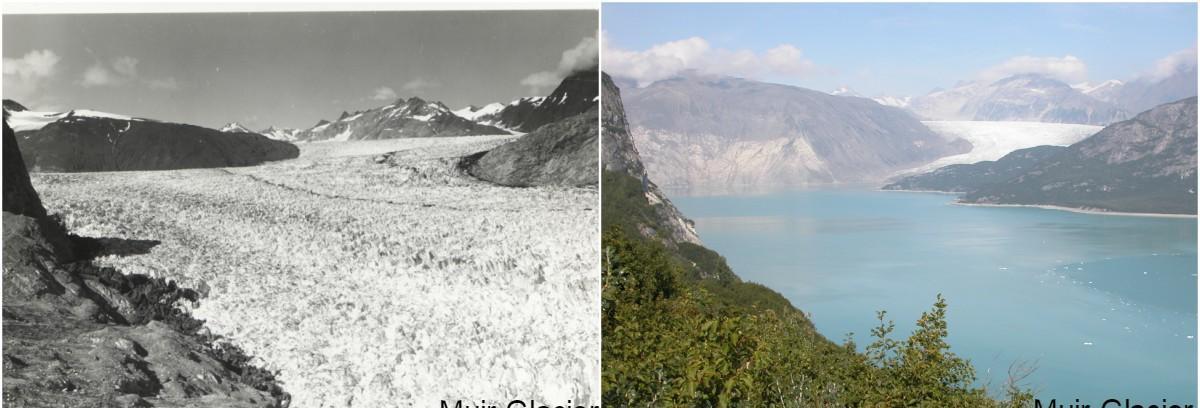Mark Twain once wrote, "A person standing with a glacier feels rather insignificant." "Huge glaciers attract people to explore, and scientists hope to predict the future of mankind through glaciers."
In August 1941, scientists recorded what the muir glacier looked like in Alaska, and in 2004, more than 60 years later, scientists came here again, but it was already a different story.

Over the course of more than 60 years, the Muir Glacier has retreated by more than 12 kilometers and thinned by more than 800 meters. Valleys that were once covered with glaciers have now been replaced by water. Today's glaciers have retreated to high slopes. This is a real testament to the dramatic climate change that is occurring on glaciers.
Many glaciers can be considered relics from the last ice age. Glaciers will slowly move forward or backward, depending on the climate and weather. When there is too much snowfall, too much snow will produce more glaciers, allowing the glaciers to advance. Excessively warm weather can cause glacier ice and snow to melt, causing the glacier to retreat. Most glaciers retreat and advance very slowly, while some rapid glaciers move forward and backward because the weather in these places has changed somewhat.
Since the 1920s, glaciers around the world have been retreating almost invariably. The unprecedented speed has also forced scientists to refocus on the issue of glaciers, is the melting of glaciers due to the fact that we are in a warm interglacial period? Or is it because of the influence of human activities? Scientists, who trace the time of glaciers all the way back to before the Industrial Revolution, found that the concentration of greenhouse gases and their significant rate of change had a considerable impact on glaciers.
Climate change is already affecting our planet, and these changes are amplified in those ecologically fragile areas, where glaciers on land melt rapidly and water entering the oceans will lead to accelerated sea-level rise. At the same time, the climate of those glacial regions will also undergo profound changes.